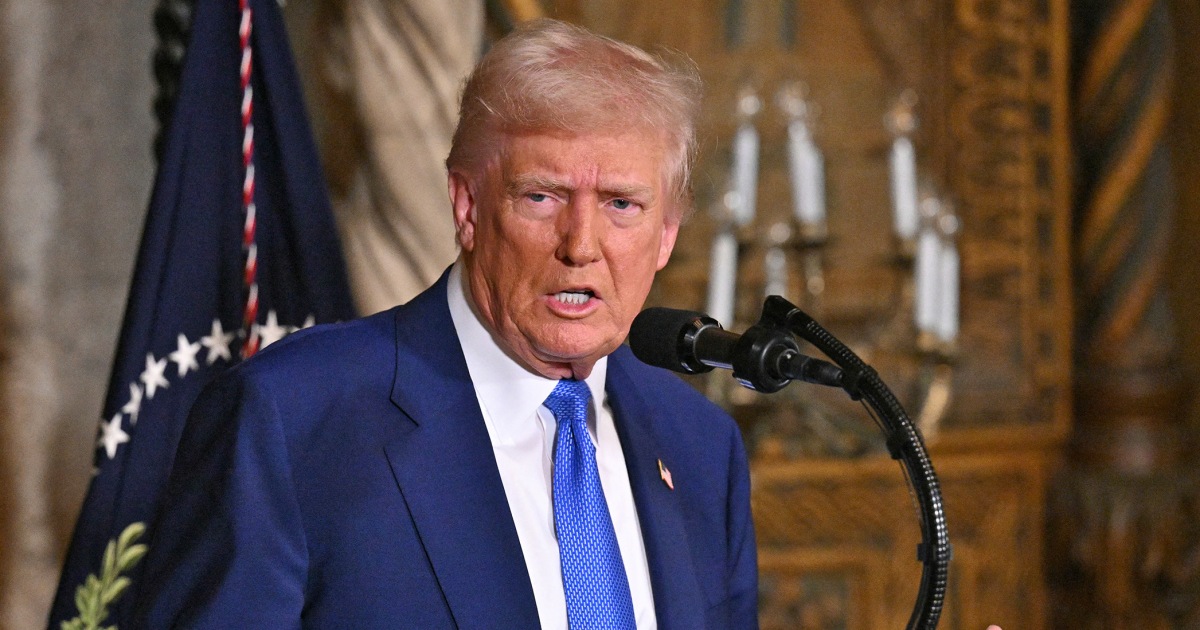Mar-a-Lago & Federal Work: The "Home Office" Debate Heats Up
The recent discovery of classified documents at Mar-a-Lago has reignited a fiery debate about the appropriateness of conducting federal work, particularly involving sensitive materials, at the former President's private Florida resort. This isn't simply a question of security protocols; it delves into ethical considerations, the blurring lines between personal and official business, and the potential ramifications for national security. The implications extend far beyond the immediate controversy, impacting how we perceive the conduct of high-ranking officials and the handling of classified information.
Security Concerns at the Heart of the Matter
The core issue revolves around the security risks associated with handling classified documents at a location like Mar-a-Lago. Unlike secure government facilities, Mar-a-Lago, despite its high-profile status, lacks the robust security infrastructure necessary to protect highly sensitive information. This raises several critical questions:
- Adequate Physical Security: Were appropriate measures in place to prevent unauthorized access to classified materials? The transient nature of Mar-a-Lago's guest list and the constant flow of visitors raise significant concerns.
- Cybersecurity Threats: Were the documents stored securely from potential cyberattacks? The lack of dedicated IT infrastructure in a private setting increases vulnerability.
- Personnel Security: Were all individuals with access to the documents properly vetted and cleared? The potential for insider threats is heightened in less secure environments.
These concerns aren't hypothetical; they represent tangible risks with potentially severe consequences for national security. The mishandling of classified information can compromise intelligence sources, endanger operatives, and undermine national interests.
Beyond Security: Ethical Considerations
Beyond the immediate security concerns, the use of Mar-a-Lago as a de facto "home office" raises profound ethical questions. The commingling of personal and official business blurs the lines of accountability and potentially creates opportunities for conflicts of interest. The perception, even if unfounded, of preferential treatment or quid pro quo arrangements can severely erode public trust.
The Legal Ramifications and Ongoing Investigations
The ongoing investigations into the handling of classified documents at Mar-a-Lago highlight the serious legal ramifications involved. Depending on the findings, potential charges could include violations of the Espionage Act and other federal statutes related to the handling of classified information. These investigations underscore the gravity of the situation and the importance of maintaining the strictest standards of security and ethical conduct for those entrusted with sensitive government materials.
Lessons Learned and Future Implications
This controversy serves as a stark reminder of the need for stringent protocols and clear guidelines regarding the handling of classified information by government officials, both in office and after leaving office. The debate over Mar-a-Lago's role in official business underscores the necessity for:
- Stricter security protocols: Enhanced measures are needed to prevent similar incidents from occurring in the future.
- Clearer ethical guidelines: More robust guidelines are required to prevent the blurring of lines between personal and official business.
- Increased transparency: Greater accountability and transparency are essential to maintain public trust.
The Mar-a-Lago controversy will likely have lasting implications on how future administrations handle classified information and conduct official business. It serves as a crucial case study in the importance of safeguarding national security and upholding the highest ethical standards in government.
Further Reading:
- [Link to a relevant article from a reputable news source]
- [Link to a relevant article from a government website]
Disclaimer: This article provides commentary on a complex and evolving situation. The information presented is based on publicly available information and should not be considered legal advice.
